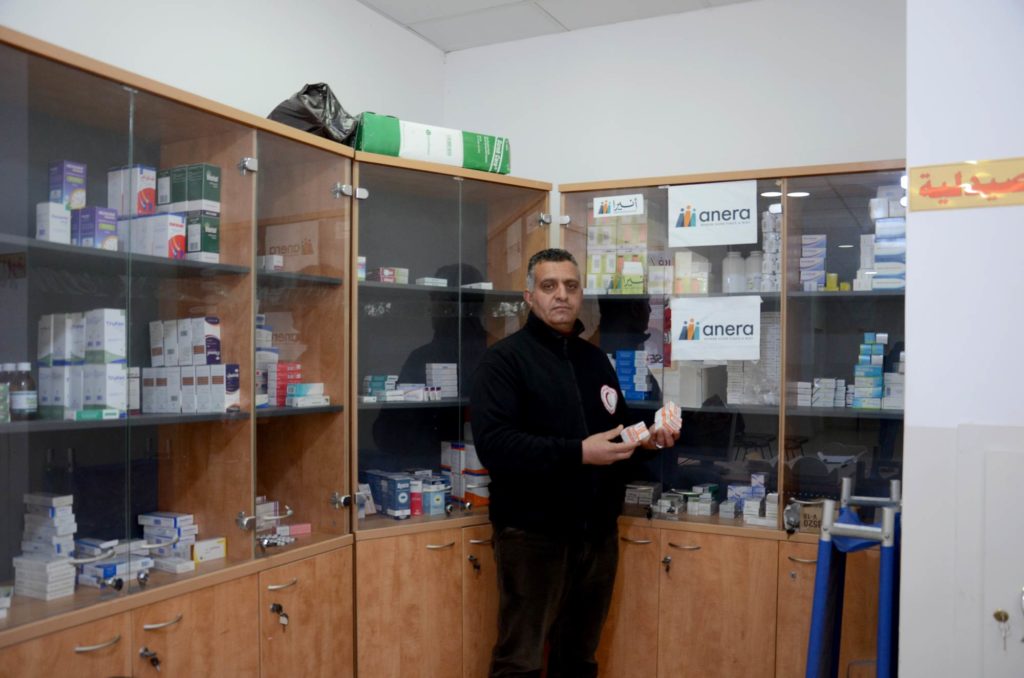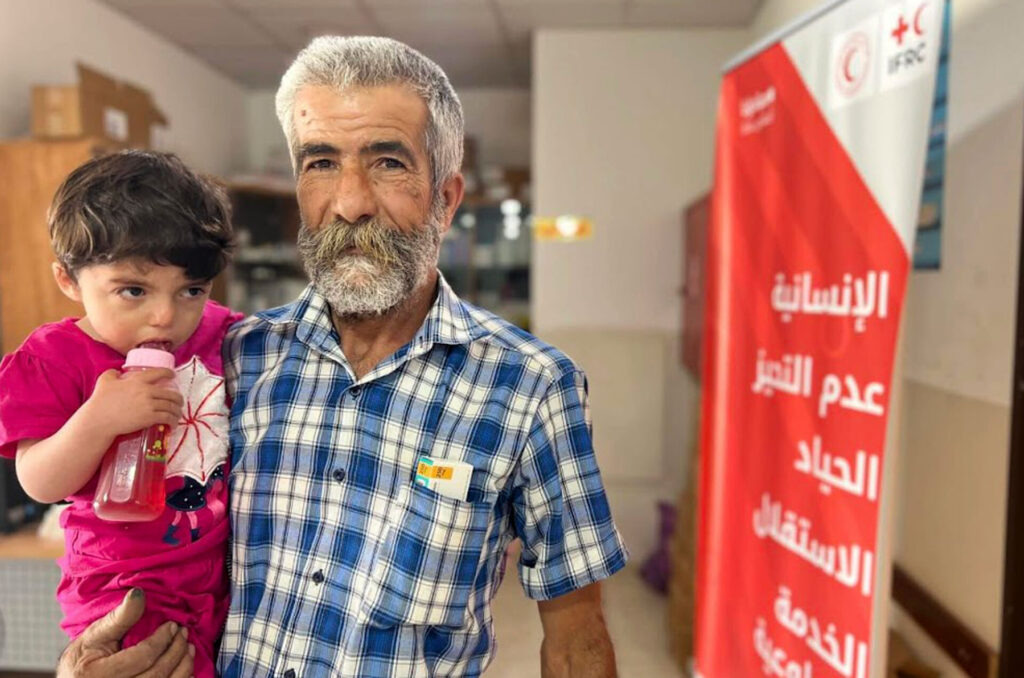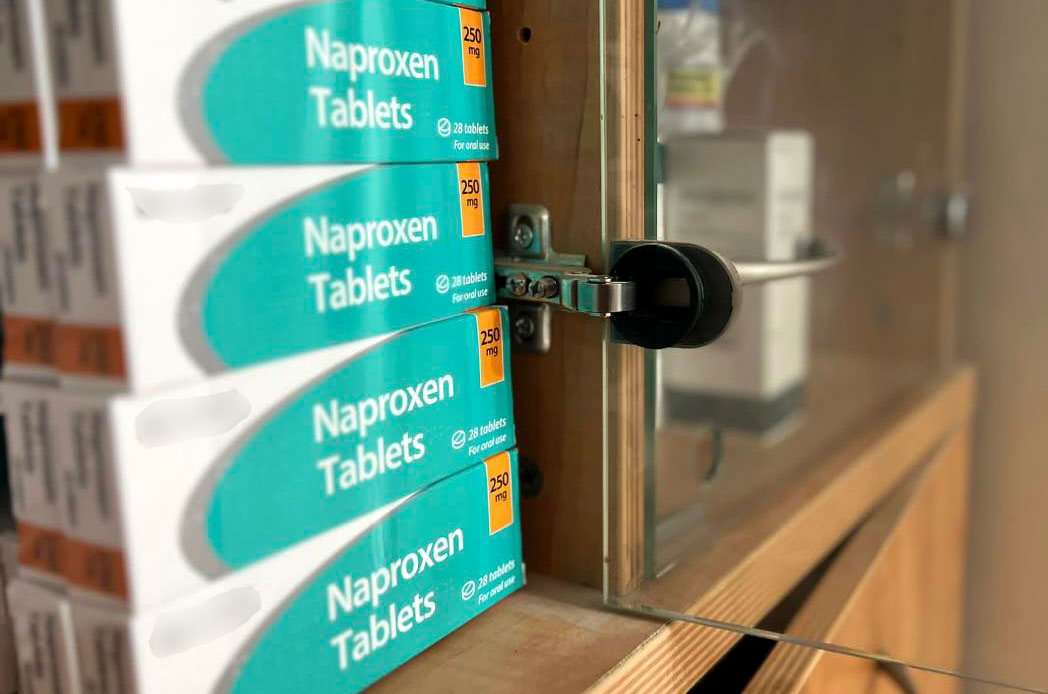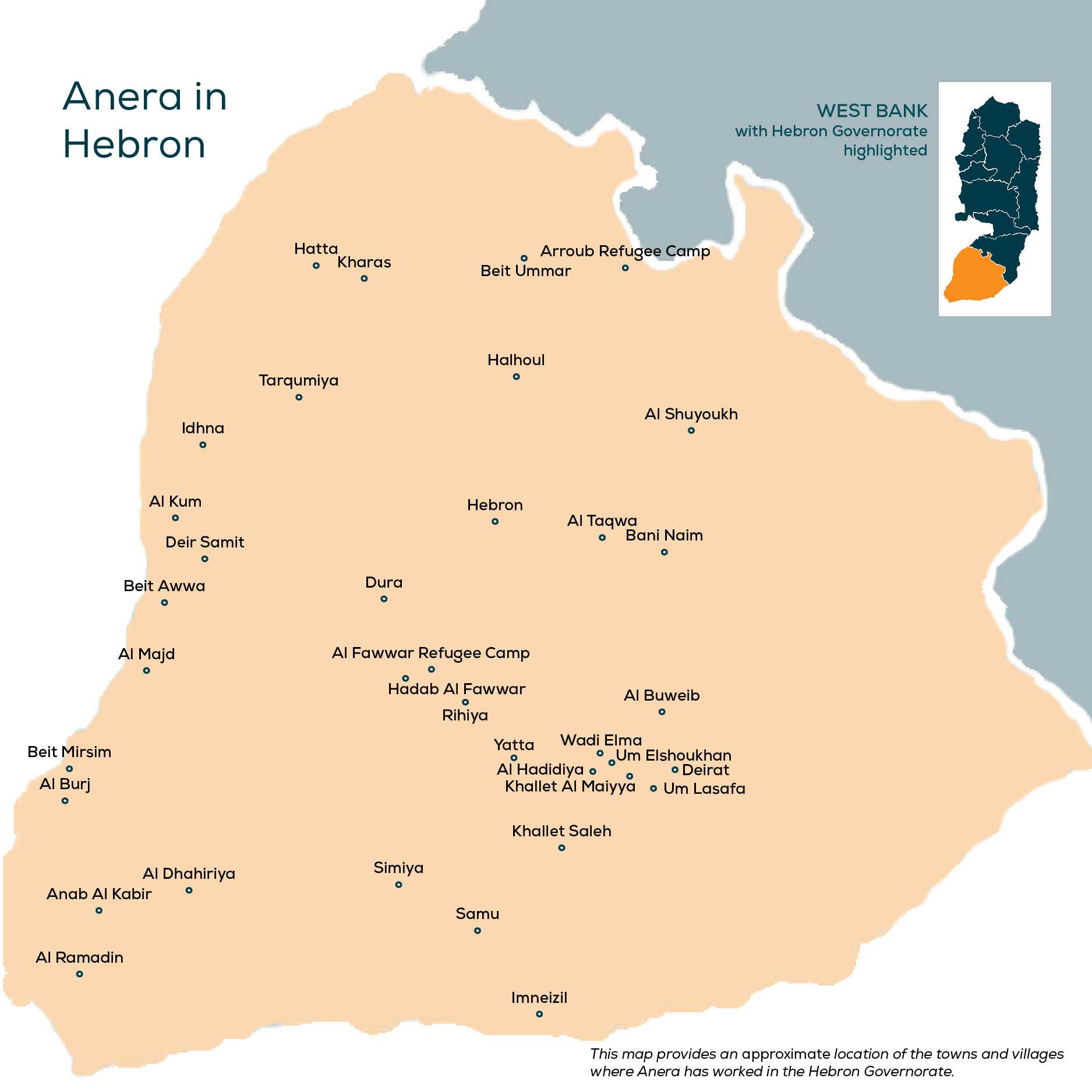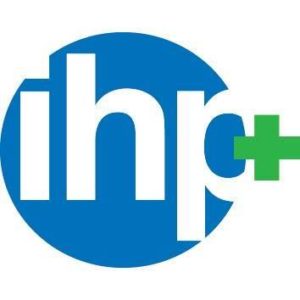Jun, 2023
Donated anti-Inflammatory medications help with pain relief for Palestinian patients
In the West Bank, access to medications can be challenging. The region’s political situation has imposed restrictions on movement and trade, preventing the import and distribution of many vital products, including medications. Unable to travel to obtain their needed treatments, many West Bank Palestinians are forced to forgo them entirely, to the detriment of their health. Economic conditions in the West Bank also have a huge impact on access to medications. High levels of poverty and unemployment in some areas limit individuals' ability to afford necessary medications like anti-inflammatory drugs.
To ease these challenges, Anera delivered naproxen, a much-needed anti-inflammation medicine, to the Palestinian Red Crescent Society (PRCS), and other charitable health centers. The donation of naproxen was supplied by our medical aid partner, International Health Partners UK (IHP).
Hamed Abu Hashem, the director of the PRCS clinic in Dura, a small city in Hebron Governorate, says,
“Naproxen is an anti-inflammatory drug that relieves pain and is prescribed for many conditions, putting it in high demand. However, most of the center’s patients come from low socio-economic backgrounds and must opt out of buying pain medications, despite the chronic pain they have to endure. This is why we hope, with Anera’s help, we can continue to provide this type of medication for free.”


“Most of [our] patients come from low socio-economic backgrounds and must opt out of buying pain medications, despite the chronic pain they have to endure.”
Khalil is a 67-year-old man who has spent most of his life working in construction. As he got older, the toll on his body became apparent. The excruciating pain in his joints left him bedridden for days on end, robbing him of simple pleasures he once enjoyed. The soaring cost of medications left him with few options, as he found himself having to choose between putting food on the table and buying his prescription drugs.
Khalil has an immediate family of fourteen, five of which are still dependent on him financially. Thanks to IHP’s donation of naproxen, Khalil was able to acquire the medication for free for the past two months. With newfound vigor, he is able to once again cherish spending time with his family.
Khalil’s story is not unique. Many individuals within the community face similar challenges, struggling to afford the medication they desperately need to reclaim their lives.
A 50-year-old patient and father of four who requested anonymity for this story had been experiencing pains in his knee joints. He came to the PRCS clinic in Dura and was prescribed painkillers from a local brand. Unfortunately, he felt no improvement and his pain continued.
Two months ago he was given naproxen, thanks to the donation from IHP. As the days passed, the man’s pains diminished in frequency and intensity. With newfound strength, he started to pick up his old pastimes like taking long hikes and other activities he had long forsaken.
“One of my jobs is working as a hiking trail coordinator. It’s a job that really requires having a healthy, pain-free body. I had to refrain from it for a while due to my condition - but now I can go back to it.”
“My family always comes here for healthcare,” said the patient from Dura. He works two jobs in order to support his family. Two of his children suffer from locked-in syndrome paralysis and are completely disabled. And his wife is currently undergoing chemotherapy for breast cancer.
With the health of his loved ones in jeopardy, finding affordable health care for him and his family of five is of great importance. “Access to quality healthcare that is affordable is hard to come by,” he says. “That's why we feel blessed and appreciative for the PRCS team.”
Myasar is another patient at the Dura clinic. A 56-year-old mother of seven that suffers from back, neck, and hand pain, she was diagnosed with four dislocated discs in her back, spinal deviation, and cervical vertebrae pressure, as well as nerve inflammation in her hand.
She says, “I can’t afford surgery to fix my health issues, and can’t afford to stay on bed rest as my family depends on me when it comes to all household tasks.”
Myasar says her doctors prescribed naproxen for her pains. “I really benefited from the naproxen. Before I started taking the medicine, I had severe pain and could not sleep at night. After using the medication my health condition has remarkably improved. I take the medication at night and feel relaxed."
“I can’t remember the last time I had a good night's sleep like this,” she says. Myasar is grateful to Anera and its donors, as she would not have been able to afford the medication if it wasn't free of charge.
Abu Hashem speaks of the difficult conditions in the region that affect access to healthcare.
“The economic situation in the region is worsening, and political turbulence is rising. This has caused a spike in the need for affordable and free health care services. We at the PRCS are doing our best to catch up with the increase in demand and are thankful to Anera and its donors for assisting us in doing so.”



